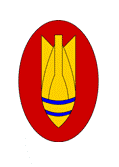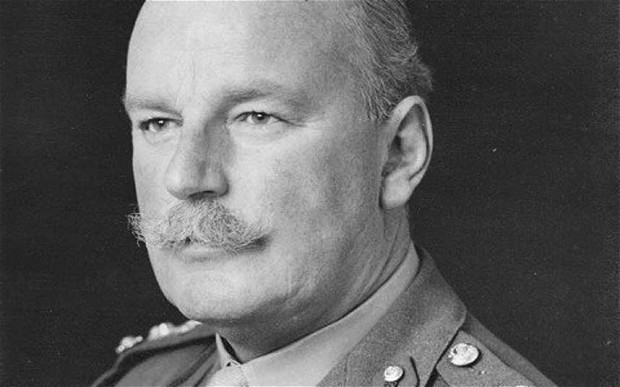

101 (City of London) Engineer Regiment
(Explosive Ordnance Disposal)
Regimental Association
Major General Logan Scott-Bowden CBE MC MM
Died 17th February 2014

Major-General Logan Scott-Bowden, who has died aged 93, carried out secret reconnaissance missions to the Normandy beaches which paved the way for the D-Day landings.
Scott-Bowden was a member of the Combined Operations Pilotage Parties (COPP), a small unit which specialised in the clandestine survey of potential sites for the Allied landings in Italy and later France. On the night of New Year’s Eve 1943, he and Sergeant Bruce Ogden-Smith, performed a beach recconaisance of the area west of Ver-Sur-Mer, later known as Gold Beach. For this action he received the MC.
Logan Scott-Bowden was born at Whitehaven, Cumberland, on February 21 1920 and educated at Malvern and the Royal Military Academy, Woolwich, where he was an accomplished athlete and swimmer. Commissioned into the Corps of Royal Engineers, in 1940 he served with 162 Independent Company in the Norwegian Campaign.
The following year he was posted to 53 (Welsh) Division RE as adjutant. After a spell in Canada and America on liaison duties, in May 1943 he joined COPP and was based at Hayling Island.
On D-Day he was assigned to Naval Force “O” and took station at the head of the fleet and immediately in front of landing craft carrying amphibious Sherman tanks. His task was to observe the first assault wave on Omaha Beach and report to his Force Commander, Rear Admiral Hall.
He had been ordered to return to England but his job with COPP was finished and, on June 10, he risked being court martialled by taking command of 17th Field Company (17FC), whose commander had been badly wounded. He was soon busy laying 5,000 mines across the expected axis of an enemy counter-attack.
For the next 10 months, he led his Company in every action. When his men were responsible for “gapping” large and treacherous minefields, invariably Scott-Bowden carried out the reconnaissance himself and directed the work, often under heavy fire.
In April 1945, at Lingen, 17FC was building a bridge over the Dortmund-Ems canal when a self-propelled gun opened up at close range. Scott-Bowden directed the operation, standing on the bridge, until he was wounded. The citation for the award to him of a Bar to his MC stated that “his individual feats of gallantry are almost too numerous to record”.
Two years in the Middle East with 1st Division, commanding 12 Field Company RE, were followed by an appointment as DAQMG at the War Office. He reassumed command of 12 Field Company in Korea and, on returning to England, became brigade major of the Training Brigade at Aldershot. After a course at the Joint Services Staff College, in 1956 he was posted as DCRE (Works) Schleswig-Holstein and Hamburg. During this appointment, he was honorary secretary of the British Kiel Yacht Club. Two years in Aden followed, and he then returned to the 1st Division in Germany as CRE. After appointments as head of the UKLF Planning Staff and Assistant Director of Defence Plans at the new Ministry of Defence, he returned to Aldershot in 1966 to command the Training Brigade.
In 1970-71 he raised and commanded the Ulster Defence Regiment, a force of seven battalions drawn from all sections of the community. He was then appointed head of the British Defence Liaison Staff in India.
Having retired in 1974 he farmed in Oxfordshire. Holidays were spent in Italy, camping in Bavaria and skiing in Austria. Appointed CBE in 1972, he was Colonel Commandant RE from 1975 to 1980.



